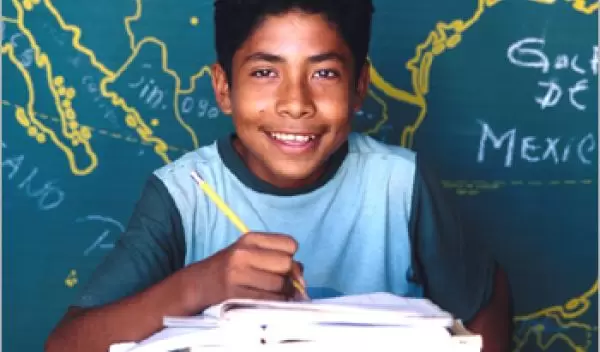
Pathways to Academic Success
How do some children manage to do well in school, even if they come from backgrounds that underperform academically on average?
"The important term here is "on average," says researcher Catherine Tamis-LeMonda. "Within all ethnic and immigrant groups there are children who are strong academic performers and others who are not. We are studying factors in a child's life that contribute to success, as well as those that create barriers to success."
By 2040, it is projected that the majority of U.S. children will be non-white, and in the largest U.S. cities, such as New York, this is already the case. Yet very little research has been conducted with children from culturally diverse backgrounds to find out what promotes school readiness and academic success.
The Center for Research on Culture, Development and Education (CRCDE) housed at New York University is working to fill the gap. Funded by NSF since its formation in 2002, the Center is co-directed by Catherine Tamis-LeMonda, Diane Hughes, Niobe Way, and Hirokazu Yoshikawa.
To better understand the factors that promote school readiness and academic achievement, the researchers have undertaken two concurrent longitudinal studies over three years, one targeting early childhood and the other adolescents. The early childhood study begins at birth, with researchers recruiting families at maternity wards of hospitals. The adolescent study recruits middle-school children from several schools throughout New York City.
The studies are focused on five ethnic groups - Mexican Americans, African Americans, Chinese Americans, Dominicans, and Puerto Ricans - and five key factors which influence school readiness and academic achievement: home life, school, peers, caregivers' work, and media.
"These five contexts are affecting children's development, their ideas about who they are and what they are capable of doing, and are already exerting important influences from the moment a child is born, if not before," Dr. Tamis-LeMonda explains. "These factors will ultimately affect children’s academic performance and approach to school."
Recognizing that many research instruments have been developed based on white, middle-class children, CRCDE researchers are going "back to the drawing board" to devise entirely new, culturally sensitive methods to identify successful outcomes for the children of tomorrow. They devoted the first year of their project to performing an in-depth ethnographic study of families from all five ethnic groups. Researchers repeatedly spent full days with the families over a period of 6 months, following them to daycare, to the grocery store and to school.
"We accumulated many hours of interviews in an effort to better understand the experiences that are important to development within each of the groups we are studying," the Principal Investigators explain. "The knowledge gained from that first ethnographic year is informing our larger study. We are not using culturally biased measures."
Early results from the CRCDE's pilot ethnography and research reveal:
- Not all learning takes place in traditional ways. Within certain families, learning is most likely to occur during mealtime. With others, it may be the family is gathered around the TV when learning occurs. And it may not always be the parents, but Grandma or another extended-family member who plays the central role in guiding the child’s development.
- The majority of low-income immigrant parents, even those eligible, do not apply for federal programs to help families and children because of fears about consequences for their citizenship. In many cases these fears are not grounded in current Immigration and Naturalization Services policy.
- New measures of how parents spend money on child-related expenses are being developed. Through extensive qualitative and survey interviewing of parents, CRCDE researchers found that the principal national assessment of household expenses the Consumer Expenditures Survey needs to be revised to increase its sensitivity to the increasingly culturally diverse U.S. population.
- Chinese youth from immigrant families suggest both higher levels of academic achievement than youth of other ethnic groups in New York City, and also lower levels of psychological well-being. Multiple factors, including family, school, and transnational immigration experiences, may explain this paradoxical combination of high achievement and low psychological adjustment gaps.
The CRCDE is effectively training a new generation of scholars, especially those from underrepresented minority groups, who are capable of working with immigrant families in their native tongues. Training is multi-disciplinary and scholars working at the Center include those from the fields of psychology, sociology, education, public policy, and economics.
In the long run, understanding cultural differences in children's learning will play a crucial role in achieving the CRCDE's core mission: identifying pathways to academic success.


